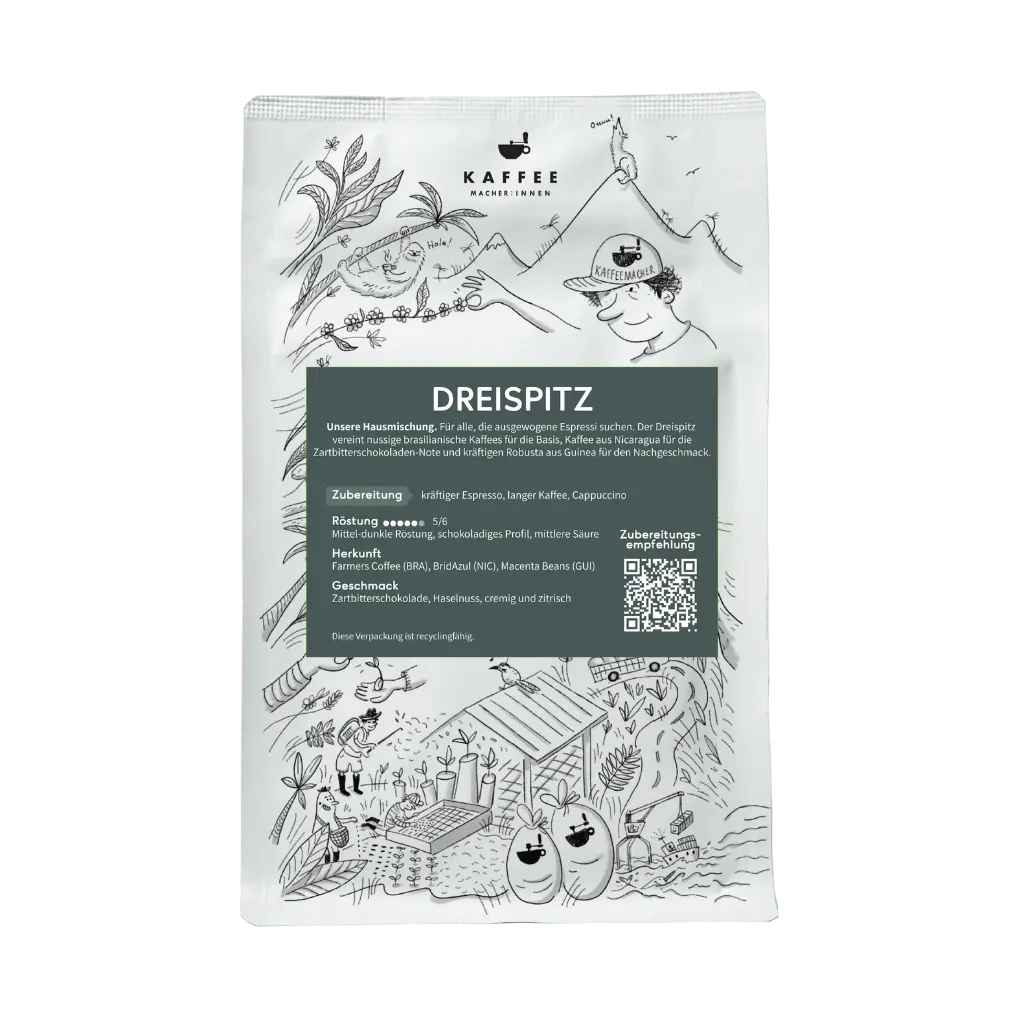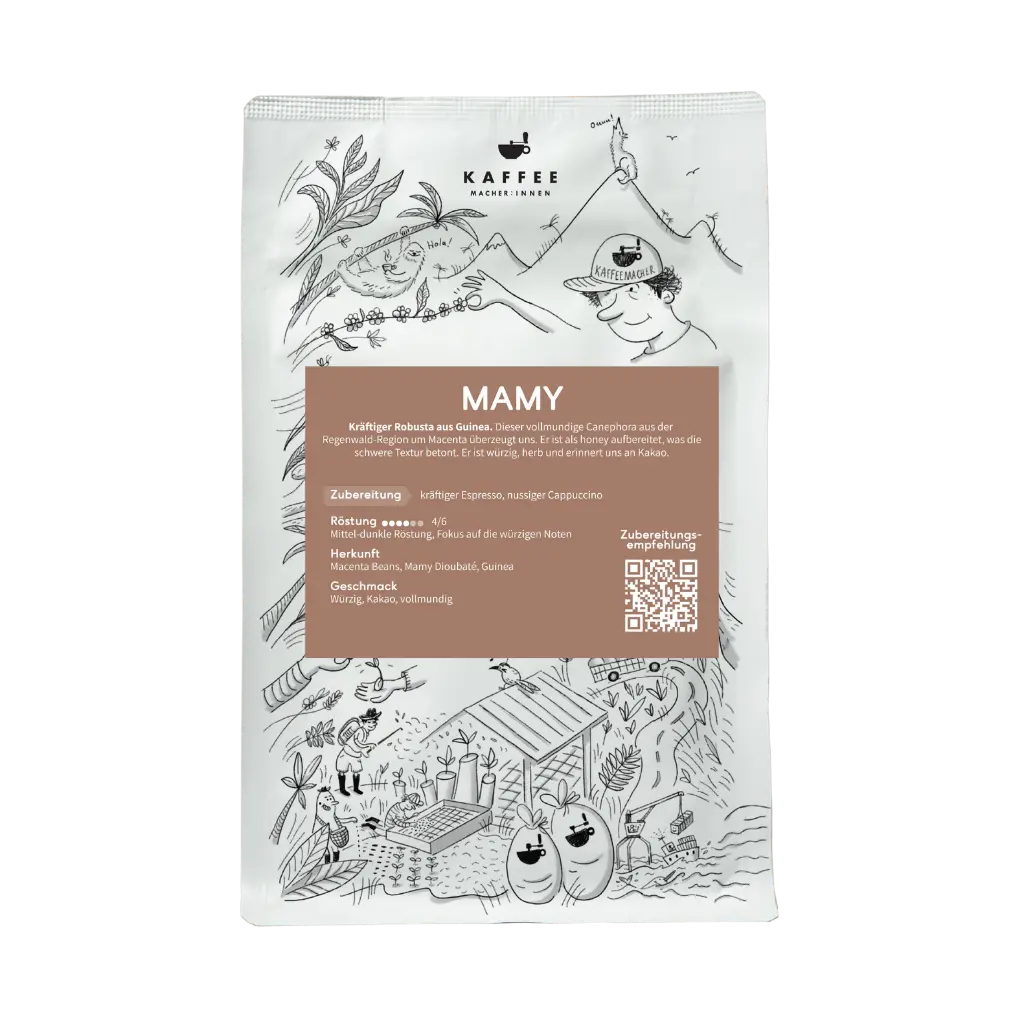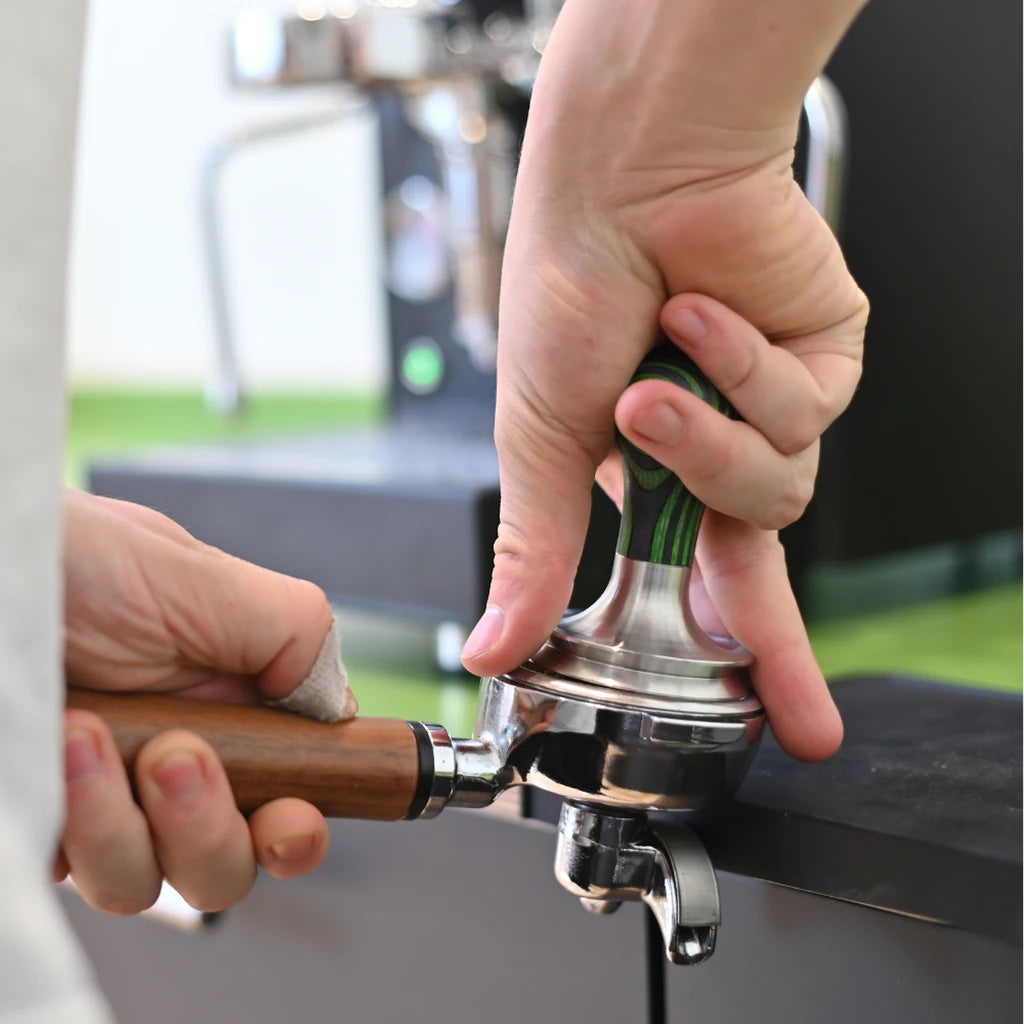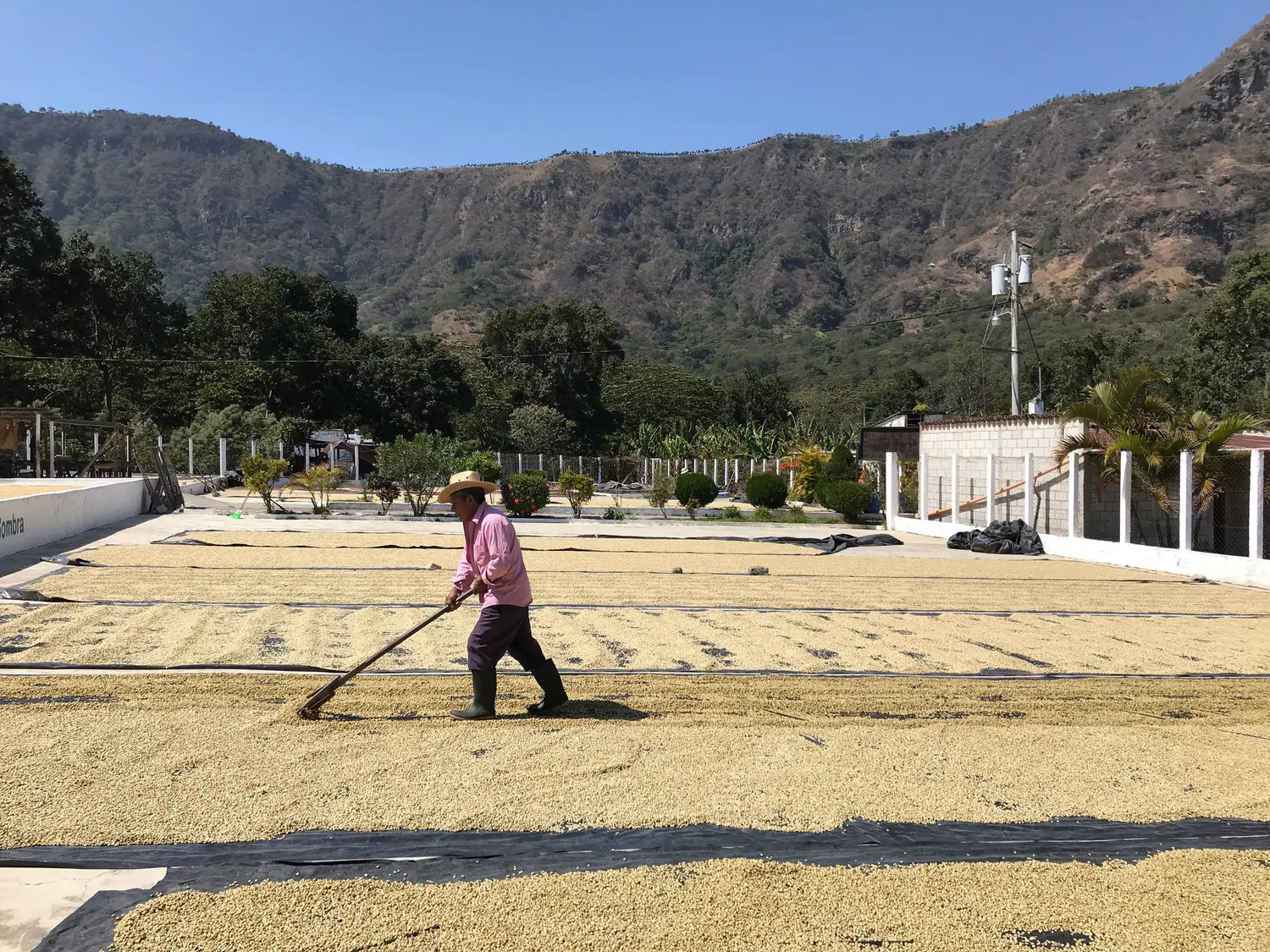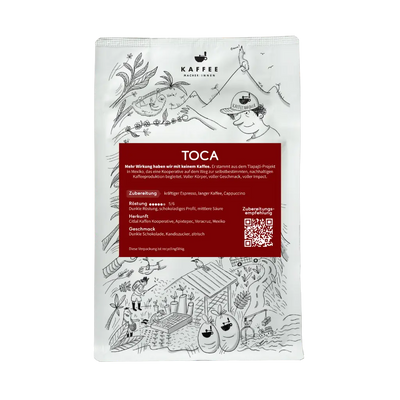Coffee-growing countries
There are currently just under 60 coffee producers worldwide, all located in the so-called coffee belt around the equator, 23° north and 25° south of the greatest parallel. We don't know exactly what impact climate change will have on cultivation and processing, or even on the entire value chain, or what it will look like in 50 years, but for many of today's coffee-producing countries, the future looks frightening, even dramatic – coffee cultivation may no longer be possible there in the future.
Others, however, may benefit from the weather changes, experiencing suddenly more intense rainfall, longer dry spells, warmer temperatures, or fewer pests. And so, it's possible that in the future we'll be able to enjoy coffee not only from current growing regions, but perhaps also from new ones, such as Argentina, Uruguay, or even Portugal. Coffee in 2050 - where will it grow? Who will grow it? Philipp dares to look into the crystal ball .
Varieties, post-harvest process and exchange
In this series on coffee-growing countries, we focus on the different national varieties, traditional and modern post-harvest processes, the characteristic flavors of the regions, the prevailing weather, and even the typicality of the soil. We look at the stock exchanges in New York and London, compare prices from recent years, and compare coffee sales in relation to gross domestic product.
History of coffee
And so we don't want to forget the history of coffee. Politically, economically, and in terms of taste, our pick-me-up has had its ups and downs. For example, in the 18th century, moral mandates repeatedly aimed to ban this exotic, energy-giving (or energy-sapping?) hot beverage – albeit unsuccessfully. Coffee is steeped in deep colonial history, with many dark and dubious stories from the past – as well as from the present. Postcolonialism, that too, concerns us.
Who is behind the coffee?
Finally, we focus on influential figures who have driven coffee forward in their countries, pioneered and continue to do so, and stand up for coffee and its culture. Companies that not only talk about a better future, but also create a better future through their values and their actions.
Because coffee isn't just a pick-me-up. Coffee is emotion, hard work, development policy, passion, taste, vision, climate policy, and much more.





